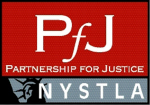 If you’re a member of the TV watching world you’ve probably seen tons of commercials offering to purchase structured settlements for “Cash Now”, especially in the last twelve months.
If you’re a member of the TV watching world you’ve probably seen tons of commercials offering to purchase structured settlements for “Cash Now”, especially in the last twelve months.
Designing and setting up a structured settlement provides the settlement recipient with a guaranteed steady income stream for the rest of their life or a specific time period. The money grows in a tax-free annuity, so for example a $400,000 settlement can grow to be worth $1 million, that will pay out in monthly installments over time, in a structured settlement.
JG Wentworth and other purchasers offer to buy these annuity streams for straight up cash now, so that the structured settlement holder does not have to wait for each installment. For example, they might entice the recipient of the $400,000 settlement with an offer of $600,000 although the structured settlement is worth $1 million. This is called “Factoring.” The danger for our clients is: where do these factored/purchased annuities go and can it affect your future clients?
The Factoring companies (Purchasers) “warehouse” these annuity streams and try to sell the recycled payment rights back to new injured parties through originators a.k.a structured settlement firms like ours. The theory is that these secondary market recycled annuities would be more appealing because the internal rates of return (IRR) on purchased/recycled annuities tend to be higher than brand new ones. However, when the stream is transferred there is a high risk that the annuity may lose its tax-free status, as it is no longer is a qualified assignment under IRS section 130. In addition, the recycled annuity’s protection from the various State’s health and life guaranty association may be lost. There may be legal challenges from the SEC and FINRA to the new ownership too, as securities may not be registered with the SEC. Plus, the purchaser may charge an expensive commission.
Here at ESS, we would be uncomfortable putting our stamp on one of these re-bundled annuities. We find the secondary market these purchasers are creating shady and unreliable, as they often fail to inform people about the tax-status of the stream. We know that 3.5 percent IRR that is tax-free is better than a recycled false 5 percent IRR that is now taxable growth. Not everyone is properly advised and people often get lost in the false rates of return. While what they are doing is legal, the gray areas concern us and we think that people should know the facts before purchasing a secondary market structured settlement annuity.
What has your experience been in the secondary market? Share your comments with us and let us know your thoughts.








